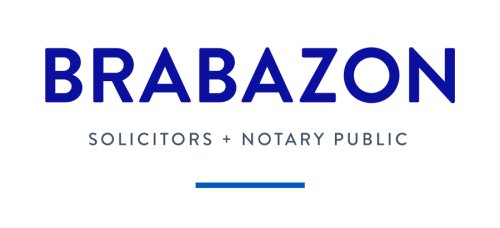Best Inheritance Law Lawyers in Dublin
Share your needs with us, get contacted by law firms.
Free. Takes 2 min.
List of the best lawyers in Dublin, Ireland
1. About Inheritance Law in Dublin, Ireland
Inheritance law in Dublin follows the same framework as the rest of Ireland. It covers wills, intestacy, probate, and the administration of estates. The core rules determine who inherits and how assets are distributed when someone dies. Local practice is shaped by national statutes, court processes, and Revenue tax rules that apply across the country, including Dublin.
The key statutes address will validity, beneficiaries, and the rights of spouses and children. Solicitors and barristers in Dublin often guide clients through complex issues such as property transfers, valuations, and tax implications. In practice, most Dublin cases involve obtaining a grant of representation from the Probate Office to manage a deceased person’s affairs.
People commonly engage a solicitor or legal counsel early in the process to compile documents, advise on tax consequences, assess potential challenges to a will, and communicate with the Probate Office. Understanding the basics of how the process works in Dublin helps align expectations with timelines and costs.
2. Why You May Need a Lawyer
Here are concrete, Dublin-specific scenarios where a solicitor or legal counsel is typically essential.
- A Dublin spouse dies leaving a valid will naming an executor and substantial Dublin property. The executor needs a grant of probate to transfer the house and settle debts, which requires careful asset valuation and tax planning.
- A person dies intestate in Dublin and the surviving spouse or children seek their legal rights. A solicitor helps identify statutory shares, coordinate with Revenue, and file the correct administration papers.
- There is a blended family in Dublin with complex assets, including a rental portfolio and a family business. A lawyer helps interpret the will, manage potential disputes, and ensure fair distribution under the Succession Act 1965 as amended.
- An estate includes assets in Ireland and abroad. A Dublin solicitor guides cross-border issues, determines which jurisdiction applies, and handles multi-jurisdictional probate and tax filings.
- Tax planning is a factor. A Dublin family wants to minimise Capital Acquisitions Tax (CAT) exposure while ensuring a smooth transfer of a long-held family home or business.
3. Local Laws Overview
Two to three principal laws and regulatory frameworks govern inheritance matters in Dublin. These statutes are applied by the Irish courts and revenue authorities and are regularly updated.
- Succession Act 1965 (as amended) - This is the foundational legislation governing wills, intestacy, and the rights of spouses and children. It sets out who inherits when there is no will and how valid wills must be executed. See the Irish Statute Book for the text and amendments: Succession Act 1965 (as amended).
- Taxes Consolidation Act 1997 (Capital Acquisitions Tax, CAT) - This law regulates inheritance and gift taxes. Revenue updates thresholds and rates periodically; current guidance is on the Revenue website. See: Capital Acquisitions Tax (CAT) - Revenue.
- Probate Office Procedures - The Probate Office, part of the Courts Service, administers grants of probate and letters of administration. These processes determine who has authority to deal with a deceased person’s assets in Dublin. Official information is available at: Probate Office - Courts Service.
Recent trends include periodic updates to CAT thresholds by Finance Acts and ongoing efforts to streamline probate forms and guidance. Official sources provide the current rates, thresholds, and procedural steps for Dublin residents. For straightforward cases, the solicitor’s guidance often reduces delays and helps avoid common errors.
4. Frequently Asked Questions
These questions cover practical, procedural, and definitional topics related to Inheritance Law in Dublin.
What is the difference between a will and intestacy?
How do I apply for probate in Dublin?
When does Capital Acquisitions Tax apply to an inheritance?
Where do I file probate papers in Dublin?
Why might a will be challenged in Dublin courts?
Can I appoint a solicitor to handle probate for me?
Should I obtain a valuation of an estate before applying for probate?
Do I need a grant of probate if there is no real property involved?
How much does probate typically cost in Ireland?
Do I qualify for spousal or dependent relief in CAT?
Is there a difference between probate and administration?
What should I do if assets are located outside Ireland?
5. Additional Resources
These official resources can provide authoritative guidance for Inheritance Law matters in Ireland and Dublin specifically.
- Courts Service - Probate Office - Official information on grants of probate and administration, forms, and procedural steps. Courts Service Probate Office
- Revenue Commissioners - Capital Acquisitions Tax - Guidance on CAT, thresholds, and filing requirements for inheritances and gifts. Revenue CAT Guidance
- Citizens Information - Practical information on wills, probate, intestacy, and rights of spouses and dependants. Wills and Probates - Citizens Information
“Capital Acquisitions Tax is charged on inheritances and gifts, with thresholds determined by relationship to the disponer.”
For official details, see the Revenue page linked above. Citations provide up-to-date thresholds and requirements that affect Dublin estates.
6. Next Steps
- Gather essential documents within 1-2 weeks: the death certificate, the original will (and any codicils), property deeds, bank statements, and recent valuations.
- Determine whether there is a valid will and who is likely to be the executor or administrator. Identify all assets in Dublin and any abroad.
- Consult a Dublin solicitor who specializes in probate and estates. Obtain a couple of quotes and ask about timelines and costs.
- Choose a solicitor and sign a retainer agreement. Provide copies of documents, asset lists, and tax information to start the process.
- Apply to the Probate Office for probate or letters of administration. Your solicitor will prepare and submit the necessary forms and declarations.
- Value assets, file CAT returns with Revenue, and settle any debts and funeral expenses. Coordinate with the executor to ensure proper tax compliance.
- Distribute assets as directed by the will or by intestacy rules, and keep thorough records for transparency and future compliance.
Lawzana helps you find the best lawyers and law firms in Dublin through a curated and pre-screened list of qualified legal professionals. Our platform offers rankings and detailed profiles of attorneys and law firms, allowing you to compare based on practice areas, including Inheritance Law, experience, and client feedback.
Each profile includes a description of the firm's areas of practice, client reviews, team members and partners, year of establishment, spoken languages, office locations, contact information, social media presence, and any published articles or resources. Most firms on our platform speak English and are experienced in both local and international legal matters.
Get a quote from top-rated law firms in Dublin, Ireland — quickly, securely, and without unnecessary hassle.
Disclaimer:
The information provided on this page is for general informational purposes only and does not constitute legal advice. While we strive to ensure the accuracy and relevance of the content, legal information may change over time, and interpretations of the law can vary. You should always consult with a qualified legal professional for advice specific to your situation.
We disclaim all liability for actions taken or not taken based on the content of this page. If you believe any information is incorrect or outdated, please contact us, and we will review and update it where appropriate.














